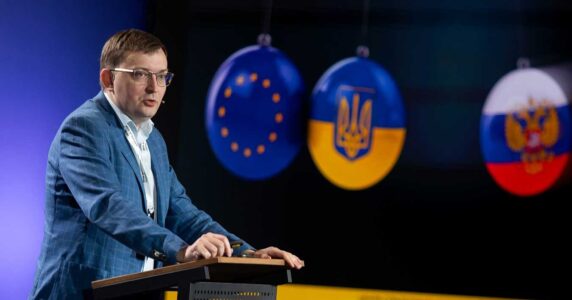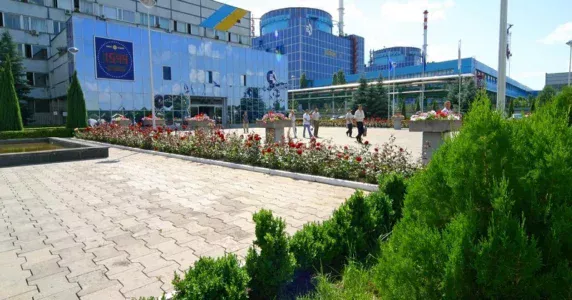Navigation and useful materials
On September 15, shots rang out near the golf club where U.S. presidential candidate Donald Trump was spending time. The suspect is 58-year-old Ryan Wesley Rooth, who previously supported Ukraine on social networks and condemned Russian aggression.
Russian propaganda, of course, began to promote this incident, reproducing the narrative that “Ukraine is supported by extremists,” and that the Ukrainian leadership may be involved in the organisation of a new alleged assassination attempt on Trump.
In addition, some media began to spread information that Ryan Rooth supposedly served in the International Legion of the Main Directorate of Intelligence of the Ministry of Defence of Ukraine. However, this is not true; the Legion itself has already stated that Ryan does not have and has never had any relation to the unit.
The Centre for Strategic Communications records the active distribution of this and other similar fakes on various Z-channel networks.
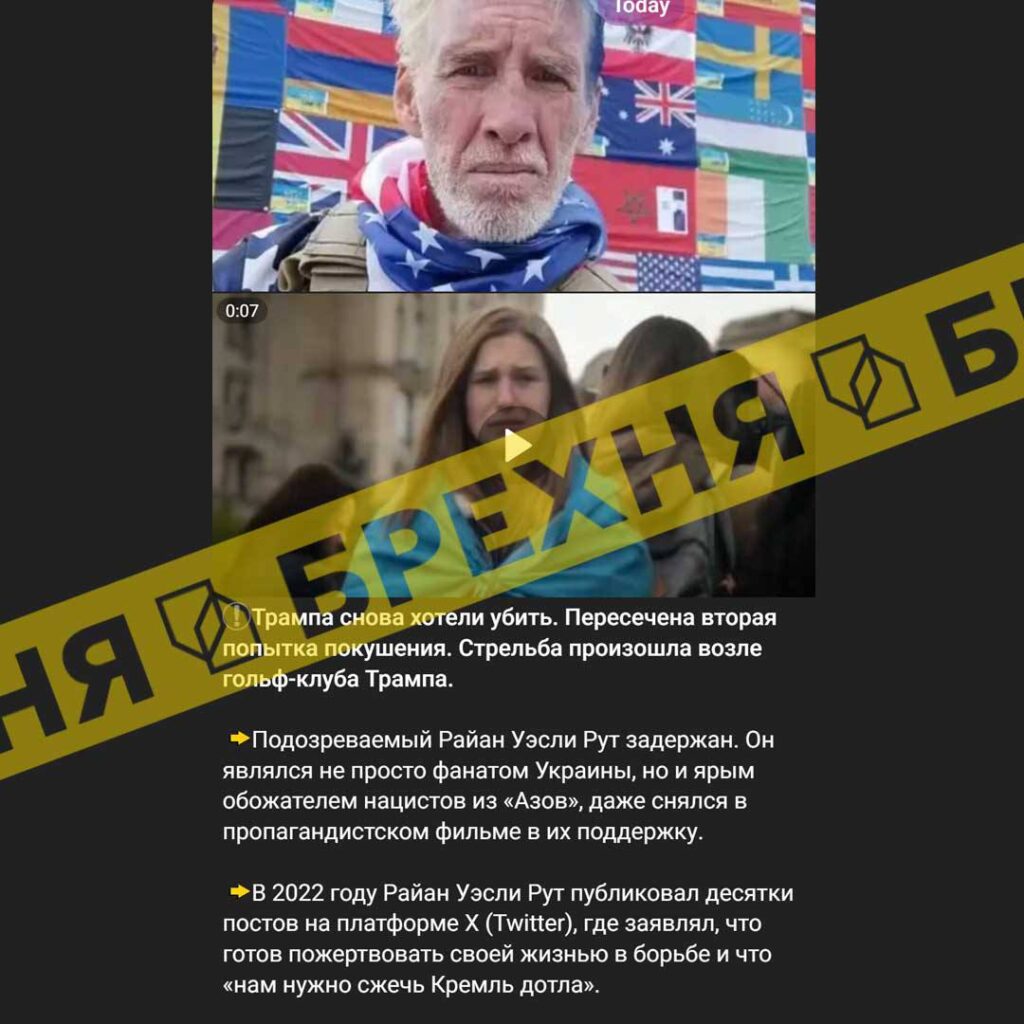
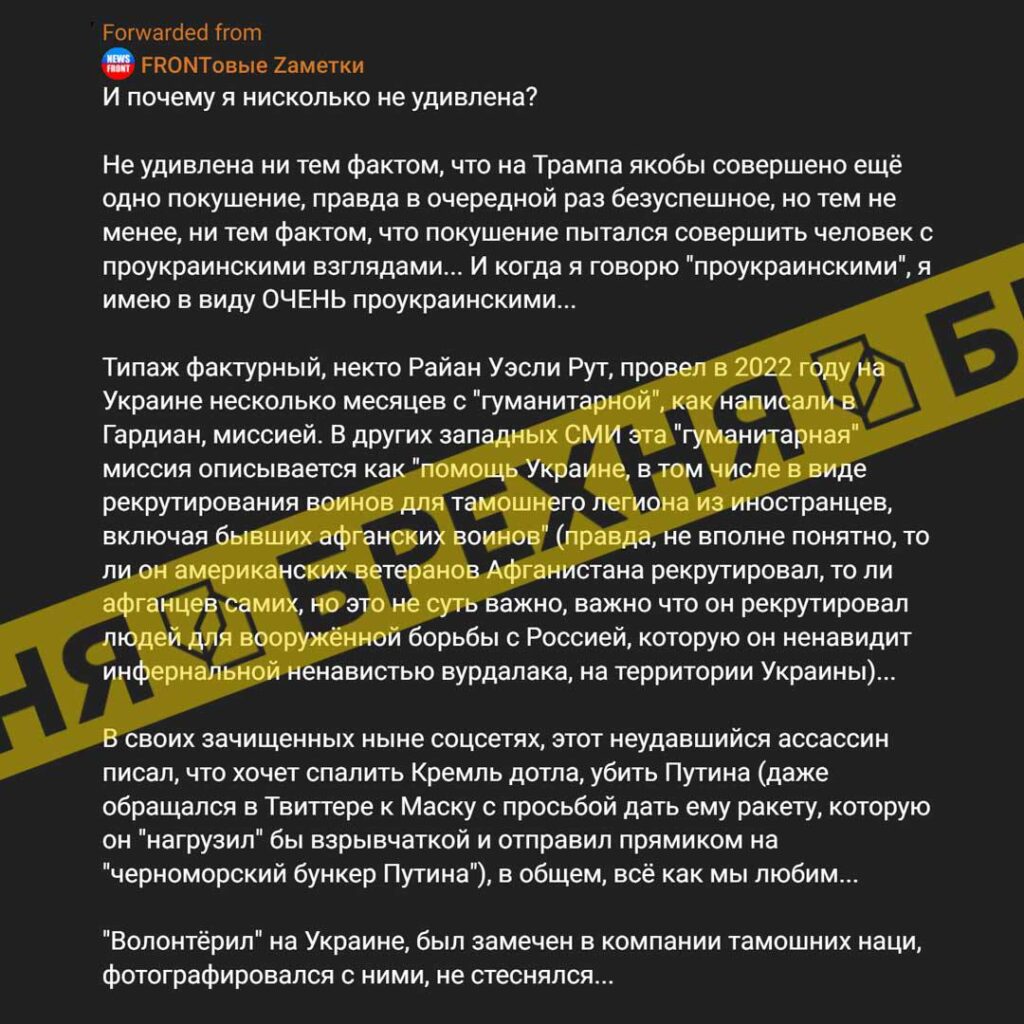
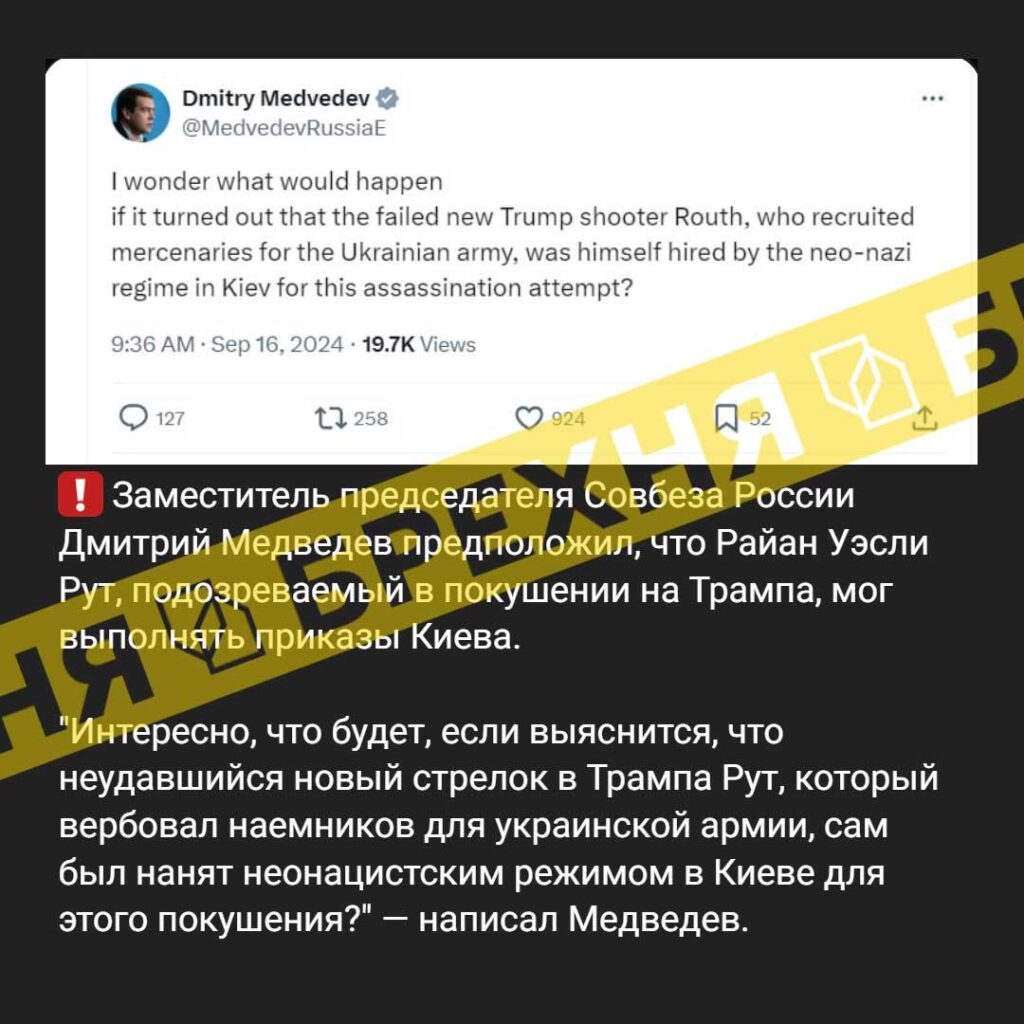
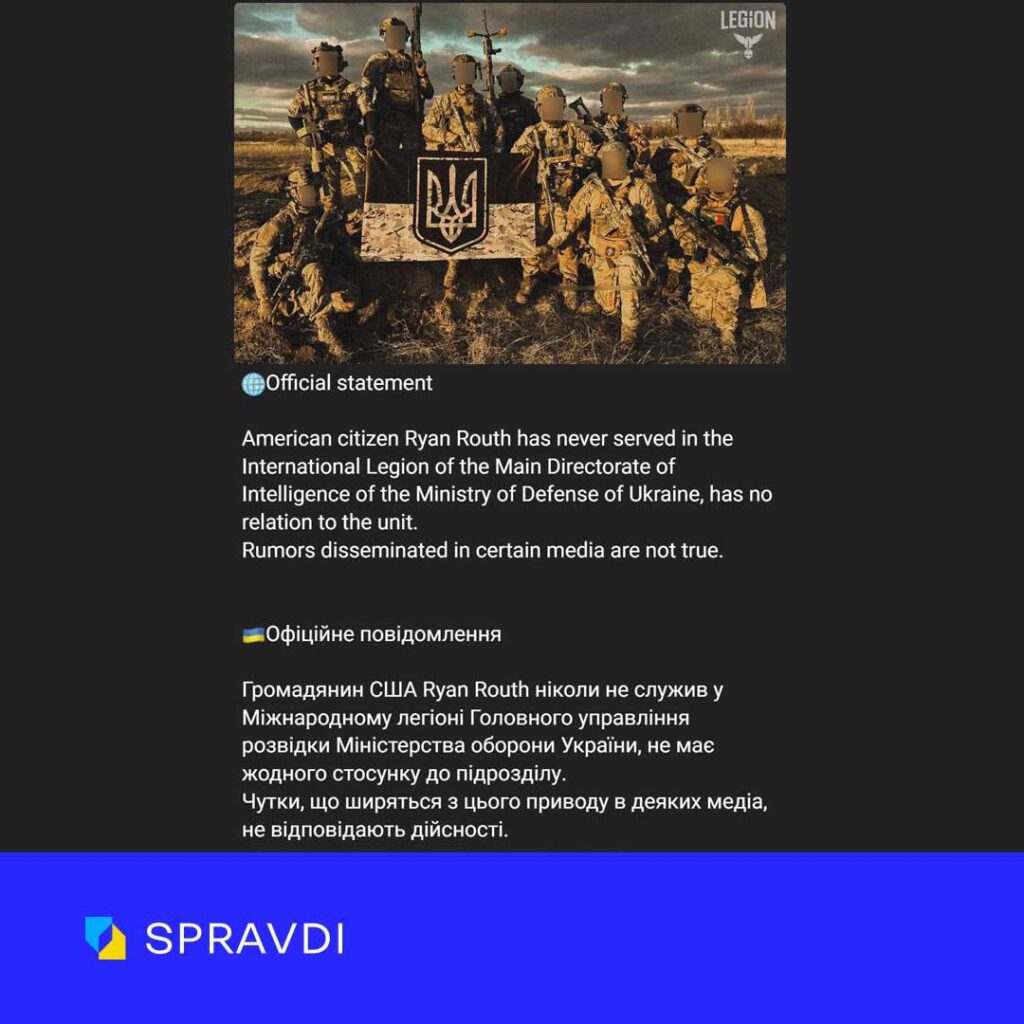
This is exactly how they acted after the assassination attempt on Trump in July 2024, although at that time the leadership of Ukraine immediately condemned this crime.
The Russian goal remains the same – loudly accuse Ukraine of involvement in anything (both assassination attempts on Donald Trump and Robert Fico, support for the Hamas terrorist attack on Israel, etc.), but do not provide any evidence. This is a tactic of mirroring one’s own actions and crimes.
Ukraine is fighting for freedom and does not resort to assassination attempts against foreign politicians as a method of political struggle. Murders of enemies of the regime are precisely the Kremlin’s signature.
“Budanov in a coma,” “New Jerusalem,” and “HAMAS obtaining Ukrainian weapons”: 10 famous of Russian propaganda in 2023
If you have found a spelling error, please, notify us by selecting that text and pressing Ctrl+Enter.
